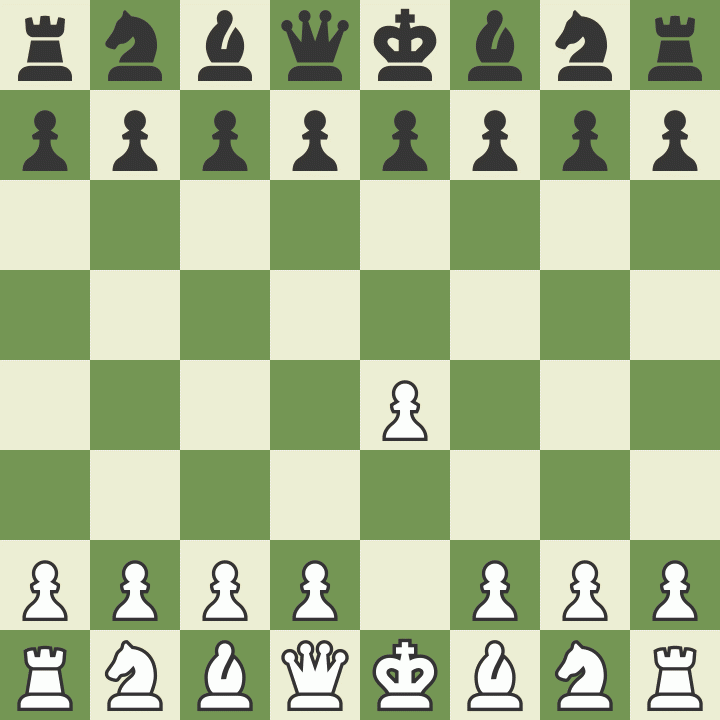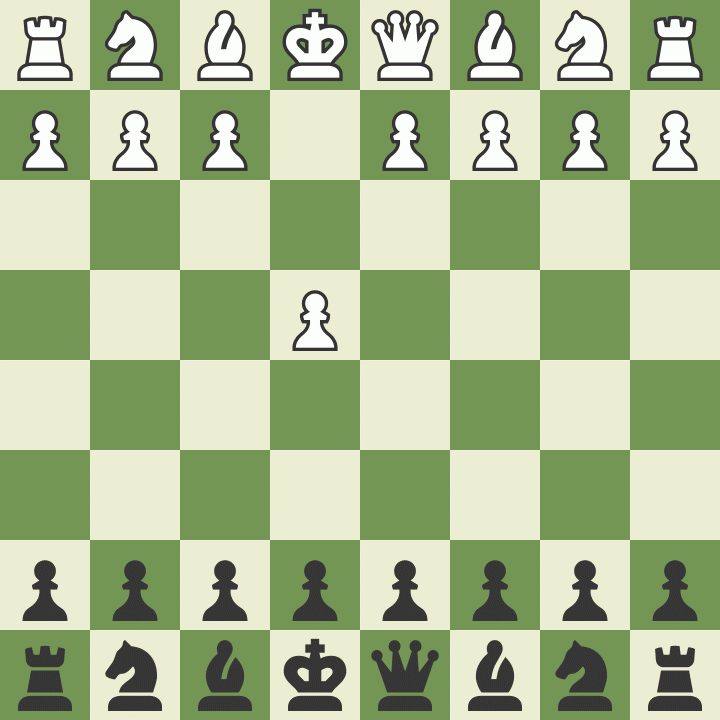Yeah this happens a lot at the faster time limits (fyi a piece of yours that can be taken is called en prise).
True and it’s why, when learning, playing lots of faster time limit games >>>>>>>>> playing far fewer long games.
I still haven’t beaten 1600 Beth without using the 3 take backs cheat :(
I played two games against the 1600 Beth - had winning positions in both that I couldn’t convert.
I don’t think their version of 1600 is very accurate - like, in both games Beth blundered a piece to obvious 1 or 2 move tactics but otherwise played nearly perfect.
When you say nearly perfectly, did you run the game through the thingamajig that tells you what % of moves were accurate?
Edit: Game Report
This is an example of how tricky chess can be - even in an opening you’ve played hundreds of times that you think you know quite well.
After it ended I thought I’d played it ok and was expecting to see 80-90% move accuracy in Game Report that you often get when winning.
Wrong!
33% lol.
https://www.chess.com/live/game/5826121823
Fairly standard Najdorf Sicilian. White’s Qd1-e1-g3 manoeuvre telegrams his intention of Bh6, so Black chooses the prophylactic 11…Re8 (also protecting e7/e6/e5) and 12…Bf8, pretty standard and an idea I picked up from some of Kasparov’s games (thanks Gazza).
After f5…e5, Bh6…Bf8, Nf3…b5, a3 (restraining b4) Black went for Kh8 to force the bishop away before continuing with the usual plan of preparing d5 with hopefully a good game.
However, Game Report says Kh8 is a mistake (eh?), though rates Black as slightly better.
Any ideas what Black should do? It’s helped me to understand something about the position I’d overlooked for a long time.
https://www.chess.com/live/game/5826121823
(that was just the first bad move)
My new found interest in Chess got me following some pro tournaments. Hikaru Nakamura’s youtube/twitch channel is super interesting and very fun way to follow the current championship. He is also a lot more American than his name would suggest if like me, you had not been following chess until last month.
He’s ranked #1 in the world on FIDE for blitz chess (Magnus 2nd). They might play in the finals.
https://twitter.com/GMHikaru/status/1332005604995592193/photo/1
I’m surprised to hear this advice. I’ve heard the opposite a few times, that playing slow time controls is the way for a beginner to get better. Total quality minutes at the board is how to get experience rather than total number of games played.
I used to agree with that and I can easily accept I might be wrong about this, but from my experience you have to get patterns and motifs fixed in your brain so you instinctively know what type of things to consider and what to ignore.
Reading and playing through annotated games is really helpful, but actually applying that to your games is difficult if you can’t recognise which ideas to apply in which positions, so now I think playing more shorter (not bullet or lightning fast) games is better than fewer longer games so your brain is receiving more and more pattern information.
So once the basic work on tactics, simple endings and openings is done and you can quickly see which moves are possible in any given position I think playing maybe 3 x 10 minute games is better than 1 x 30 min game.
But like I said I could very easily be wrong about this.
No, I think that might make sense. If you consider 15+10 (for instance) a fast game, then I think I’m on board. The old school (Russian) way of thinking was that 60 minutes per side (at a minimum) was the only way to learn real chess.
edit: oh, I see your edit now.
Highest recommendation for a book of annotated wonderful games that I found improved my game every time I spent an hour or so with it:
It’s the algebraic edition of probably the most famous published collection of annotated games.
Fischer is especially good for us to study because his game was built around finding plans that eluded most mere mortals, and playing beautifully simple moves to implement them.
The other player you can learn a lot from for the same reasons is Capablanca imo.
Yeah you’re right about Blacks underdevelopment, but that’s a trait of the Sicilian.
It’s called a coiled spring because although Black is cramped his pieces cooperate perfectly and when he breaks out (the thematic Sicilian threat is to play b4 attacking the c3 knight, and therefore also Whites e4 pawn that the knight is protecting, and/or play d5 breaking open White’s centre) his pieces spring into life and he usually achieves easy equality.
This relates to an earlier post where I said how difficult it is to answer general questions about what’s best to do because there are a vast number of exceptions.
So observing the usual advice about developing pieces in the opening is solid and sensible, but some of the most popular openings ignore this (eg the Spanish and King’s Indian)!
On top of that cardinal sin the Spanish also ignores the usual solid advice about not moving a piece more than once in the opening - the Spanish bishop moves 3 or even 4 times before the queen’s knight has left b1!
Chess is fucking hard.
Damn I just had an epic game on chess.com (vs a 1300 computer, don’t judge) that went like 95 moves before a draw. I was looking forward to seeing what I’d done wrong but got a “url too long” error when trying to go to analysis. What the fuck?
Also, regarding the computer simulations on chess.com (so I assume this applies to BethBot as well)–I have noticed that the computer is terrible in end game basically always. I’m still at the frequent-blunders stage of the game myself so I get into bad positions or material disadvantages pretty frequently, but I’ve found that patience can get me to an end game with only a slight disadvantage which I can then flip or at least draw against the computer’s blunders.
My hypothesis is that the ELO scaling for bots is achieved by randomizing moves from the top few on the engine’s tree, with lower bots having a higher chance of choosing lower rated moves. My logic is that this is less noticeable early on when the 3rd best move isn’t so different from the top move during openings, but it then becomes very apparent during the end game where there are fewer “good” moves available and thus the gap between the best and the 3rd best starts to widen. Idk if there’s anything to this, just anecdotal from my uninformed experience.
Why only 99.7%? I want the full 100% damnit lol

I don’t know what the heck happened but I didn’t play at all for 6 months because I was frustrated about being so bad. Gave it another go (thanks Beth Harmon) and have now won 8 in a row at 15+10. Very proud of my 1150 rating lol.
I posted the above to let people know that horrible blunders happen very often, and if you can capitalise on them while making as few of your own as possible you’ll progress nicely.
There’s a line in the Sicilian I play where for some reason white often forgets that his c4 bishop or his c3 knight are on prise to black’s queen lol.
Haven’t played chess in ages, but you guys got me interested. if anyone who isn’t good wants to play a correspondence game, hit me up at Blunder_Man on lichess. I am basically hot garbage at chess.
I have noticed that computer chess is extremely bad at mimicking the way bad human chessplayers play chess. It will randomly leave a piece hanging in a way that no novice would ever do but also it will come at you with devastating combo attacks. I think there’s basically no real market for AI that simulates stupid humans; artificial stupidity might be the final frontier in AI research.
I was using an iPad for speed chess because I found it faster than a mouse, but the downside for me is a time trouble tendency to “throw” a piece onto a square, and it landing short lol.
So now I’m using a laptop and mouse and trying to get faster with it. It’s still not without risk though, as the world champion found (in a winning position) this week…

The Russian who’s good at poker but not at chess is very much going against the stereotype.